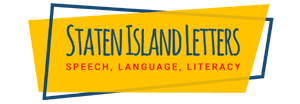Assessing Reading Skills: Understanding Reading Level Tests
Reading is a gateway to knowledge, imagination, and personal growth. As readers, we encounter a vast array of texts, each with its level of complexity. To better understand and navigate this literary landscape, reading levels serve as invaluable guides.
Reading levels can be daunting for many people, but a good understanding of them is key to improving your reading skills and comprehension. Whether you are trying to improve your reading level for school, university, or professional purposes, understanding reading levels can help you make the most of your reading time. In this blog post, we will provide an overview of the reading levels and discuss strategies for improving your reading level.
What Are Reading Levels?
Reading levels are a classification system used to assess the difficulty and complexity of texts, as well as to determine the appropriate reading proficiency level for readers. These levels serve as a guide to match readers with texts suitable for their abilities and developmental stage. Reading levels are typically categorized by age, grade, or a designated alphanumeric system.
Different reading level systems exist, each with its own criteria and scale. Some commonly used systems include Lexile, Guided Reading Level (GRL), Reading Recovery Level, and Developmental Reading Assessment (DRA). These systems may use quantitative measures, such as word difficulty and sentence length, and qualitative measures, such as text complexity and literary features, to determine reading levels.
How is Your Child’s Reading Level Assessed?
When assessing a child’s reading level, there are a variety of tests and activities that can be used to measure comprehension, fluency, and accuracy. Some of these include informal reading inventories, graded word lists, and running records, all of which provide useful information about a student’s current level of reading proficiency.
In addition, standardized tests such as the Dynamic Indicators of Basic Early Literacy Skills (DIBELS) can provide a more comprehensive view of a student’s overall reading performance. With the help of these assessments, teachers can better understand how to effectively support their students in reaching their reading goals.
Differences In Reading Levels Between Age Groups
One of the most interesting things about reading levels is the differences between age groups. Generally, older students have higher reading levels than younger students, while younger students tend to read at a slightly slower pace. This can be attributed to the fact that older students have more reading experience and more time to develop reading skills.
Additionally, older students may be more familiar with the language and can better recognize and comprehend the words. On the other hand, younger students may take longer to understand the words and may have a different level of familiarity with the language.
Importance of Reading Levels
- Supporting Skill Development: Reading at an appropriate level allows readers to build and reinforce their reading skills. It ensures that readers encounter texts that challenge them just enough to foster growth without overwhelming them.
- Building Confidence: Matching readers with texts at their appropriate level promotes success and boosts confidence. When readers can comfortably comprehend and engage with the material, they are more likely to enjoy the reading experience and develop a positive attitude toward reading.
- Guiding Book Selection: Reading levels serve as a valuable guide when choosing books. They help readers and caregivers identify books that align with a reader’s abilities and interests, fostering a love for reading and encouraging the exploration of diverse genres and topics.
- Informing Instructional Decisions: Reading levels assist educators in tailoring instruction to meet the needs of their students. By assessing individual reading levels, educators can differentiate instruction, select appropriate materials, and provide targeted support to facilitate growth and achievement.
Navigating Reading Levels
- Utilize Reading Level Systems: Familiarize yourself with popular reading levels systems such as Lexile, Guided Reading Level (GRL), or Reading Recovery Level. Understand the criteria used by each system to determine reading levels and seek out resources that provide this information.
- Assess Personal Reading Level: Use tools like reading assessments or guided reading experiences with a teacher or librarian to determine your reading level. This self-awareness will help you make informed choices when selecting books.
- Seek Recommendations: Consult teachers, librarians, and reading specialists for book recommendations based on your reading level. They can suggest books that align with your abilities and interests, expanding your literary horizons.
- Gradually Expand Horizons: As you become more confident in your reading abilities, gradually challenge yourself by selecting texts slightly above your current reading level. This approach promotes growth and stretches your skills without overwhelming you.
- Enjoy the Journey: Remember that reading levels are guides, not rigid rules. While it is essential to read at an appropriate level, feel free to explore texts that capture your curiosity, even if they are slightly above or below your designated level.
Common Reading Level Systems
Guided Reading Level (GRL), Lexile Framework, Reading Recovery Level, and Developmental Reading Assessment (DRA) leveling systems lack reliability and validity, particularly at lower reading levels. These systems do not adequately control text complexity in terms of decodability, often including challenging words like “elephant” in books assigned lower levels. Lower-level texts encourage students to rely on sentence patterns and pictures rather than actual reading skills. Overall, their findings do not align with well-established and valid measures of reading ability.
While the Lexile measure offers more utility than these systems, it also falls short at the lowest reading levels. It is worth noting that research suggests students should not be confined to reading books strictly at their designated “level.” Students with high interest and motivation can successfully tackle more challenging books on subjects that intrigue them or that they have prior knowledge about. Restricting students to specific levels can hinder their reading growth and exploration.
On the other hand, DIBELS, Acadience, and similar nationally normed standardized measures excel as screening tools for identifying students with underdeveloped reading skills. However, they are not diagnostic and do not provide teachers with specific guidance on which skills to teach or indicate the text qualities that students are prepared to handle.
Benefits of Improving Reading Levels
Improving reading levels can have a tremendous impact on many aspects of life. Those who can read well often find that they can better understand and process information, which can lead to greater success in the workplace, in school, and in other areas. Furthermore, reading well can increase critical thinking skills, allowing individuals to make more informed decisions.
Additionally, reading well can help individuals develop better communication skills, as understanding written words is essential to communicating effectively.
Finally, improving reading levels can help to build a greater appreciation for literature, opening up a world of knowledge and entertainment.
Things to Do if Your Child is Struggling with Reading
If your child struggles with reading, it’s important to provide support and create a positive learning environment to help them overcome difficulties and develop their reading skills.
Here are some things you can do:
- Identify the Challenges: Observe and pinpoint specific areas of difficulty in reading to address them better.
- Consult with Teachers: Communicate with your child’s teacher to gain insights and collaborate on effective strategies.
- Create a Reading Routine: Establish a consistent daily reading time and choose books aligned with their interests and abilities.
- Provide Supportive Materials: Offer a variety of reading materials to maintain engagement and cater to their preferences.
- Read Aloud: Continue reading aloud to your child to expose them to fluent reading and foster discussion.
- Use Multisensory Techniques: Incorporate hands-on activities to reinforce reading skills, such as tracing letters and using manipulatives.
- Practice Phonics and Sight Words: Focus on phonics instruction and sight word recognition through interactive methods.
- Provide Positive Reinforcement: Encourage and celebrate their progress and efforts to boost confidence.
- Seek Professional Help if Needed: Consider seeking assistance from specialists or tutors if difficulties persist.
- Foster a Love for Reading: Make reading enjoyable, visit libraries, and engage in discussions about books to nurture a love for reading.
Remember, each child progresses at their own pace, and patience is key. You can help your child overcome reading challenges and develop a lifelong passion for literacy by providing support, utilizing effective strategies, and fostering a love for reading.
Our reading tutors are experienced in teaching a variety of reading levels, from beginner to advanced. They can help your child develop comprehension, fluency, and decoding skills and improve their overall understanding of the English language. Whether your child struggles to keep up in school or needs extra help, our tutors can help them reach their learning goals.







